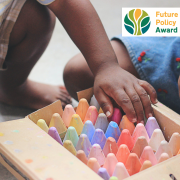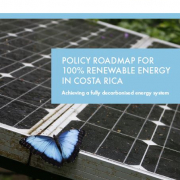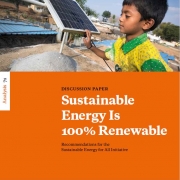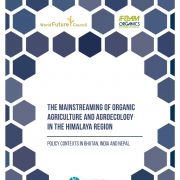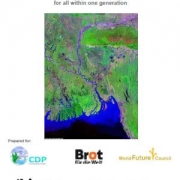Policy Roadmap for 100% Renewable Energy in Costa Rica
Costa Rica is a global leader when it comes to ensuring energy production comes from renewable energy sources.
Achieving 100% Renewable Energy for all
The Sustainable Energy for All (SEforAll) initiative pledged to ensure universal access to modern energy services, double the rate of improvement in energy efficiency and double the share of renewable energy in the global energy mix by 2030. Yet, it’s self-published progress reports states that the initiative has fallen short of its objectives.
This report summarises the initiatives often underlined structural shortcomings. Namely, a lack of integration into other UN frameworks, an excessive focus on centralization and profitability, a disproportionate emphasis on private finance, a lack of inclusion of diverse business models and a lack of representation and civil society involvement. The report then examines the SEforALL Action Agendas for eight African countries.
100% Renewable Energy for Costa Rica – A Decarbonisation Roadmap
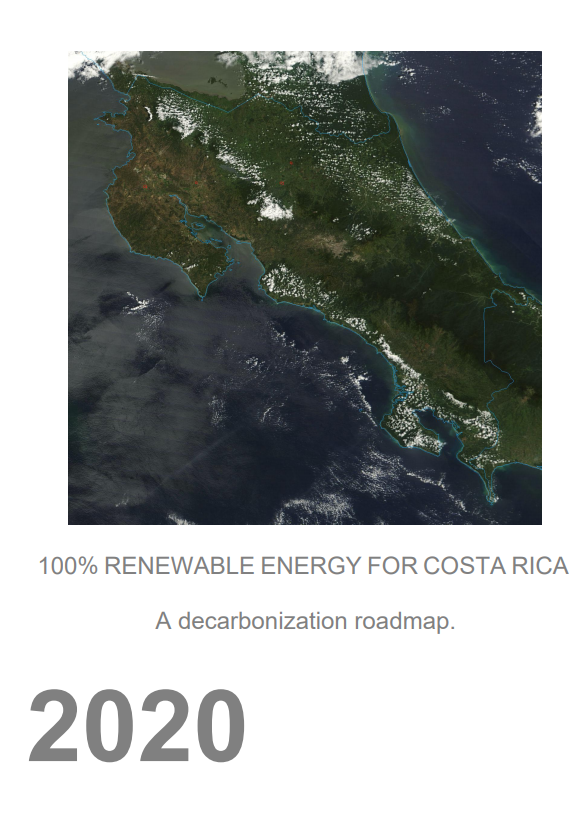
Excerpt
100% Renewable Energy for Costa Rica: Costa Rica is already a global leader when it comes to ensuring energy production comes from renewable energy sources. With a 98% share of renewables in its electricity matrix and solid achievements to prevent deforestation—around 25% of the country’s land area is in protected National Parks and other protected areas—Costa Rica is at the forefront of environmental sustainability, climate action and driving the renewable energy transition. Wanting to go even further, Costa Rica has adopted the National Decarbonization Plan in February 2019 to achieve a net-zero emissions economy by 2050, in line with the objectives of the Paris Climate Change Agreement. This report, commissioned by the World Future Council and La Ruta del Clima/Costa Rica, and financed by the One Earth Foundation USA to provide input into Costa Rica’s ambitious plan to achieve 100% renewable energy.
As the Costa Rican President, Carlos Alvarado Quesada, noted during the launch of the Plan, “Decarbonization is the great challenge of our generation and Costa Rica must be among the first countries to achieve it, if not the first.” The biggest challenge will be to increase the share of renewables in energy consumption. More than 60% of energy consumption in the country is from petroleum derivatives. 64% of Costa Rica’s emissions come´from energy use, and more than two thirds of that is from transport. A critical part will thus be to
decarbonize the transport sector. The growing demand for personal vehicles, the majority of which run on petrol, is keeping a high share of fossil fuels in the country’s energy consumption. The Decarbonization Plan aims to have 70 percent of public transport powered by electricity in 2035—and the whole fleet by
2050.
This study aims to complement these efforts and show pathways to 100%RE in order to meet the
decarbonisation challenge.
Sustainable Energy is 100% Renewable – Recommendations
The Sustainable Energy for All (SEforAll) initiative pledged to ensure universal access to modern energy services, double the rate of improvement in energy efficiency and double the share of renewable energy in the global energy mix by 2030. Yet, it’s self-published progress reports states that the initiative has fallen short of its objectives.
This report summarises the initiatives often underlined structural shortcomings. Namely, a lack of integration into other UN frameworks, an excessive focus on centralization and profitability, a disproportionate emphasis on private finance, a lack of inclusion of diverse business models and a lack of representation and civil society involvement. The report then examines the SEforALL Action Agendas for eight African countries.
(Em)Powering Cities in the European Union
Renewable energy remains at the top of the agendas of many policy makers worldwide. And that is for good reason – Technologies for renewable power generation, heating and cooling, and transport are affordable and most often the cheapest option.
The Mainstreaming of Organic Agriculture And Agroecology in the Himalaya Region
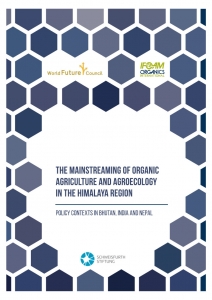
Excerpt
The Mainstreaming of Organic Agriculture And Agroecology in the Himalaya Region: Adequate policies that advance the transition towards sustainable agriculture and food systems to ensure healthy food for all, to overcome social and economic inequalities and to protect our environment, climate, and biodiversity, are urgently needed. After highlighting the world’s best policies scaling up agroecology with the Future Policy Award 2018, the World Future Council and IFOAM – Organics International proudly present the study “The Mainstreaming of Organic Agriculture and Agroecology in the Himalaya Region. Policy Contexts in Bhutan, India and Nepal”, realized with the kind support of the Schweisfurth Foundation. It is follow up of our efforts to showcase existing political support towards organic farming and agroecology and brings new insights on the current institutional efforts and limitations of mainstreaming sustainable agriculture across the Himalaya Region, with a focus on three countries: Bhutan, India and Nepal.
Preview
There is no doubt that organic agriculture and agroecology provide an effective pathway for achieving the Sustainable Development Goals (SDGs) and delivering the 2030 Agenda. The sustainable management of our planet’s natural resources underpins our ability to achieve these
targets. The transformation of our agriculture and food systems will represent an essential step towards this vision. The right to food is recognized by the 1948 Universal Declaration of Human Rights and was enshrined in the 1966 International Covenant on Economic, Social and Cultural Rights. However, discussion on achieving a world free from hunger is often associated with a plea for increasing productivity with any means. This short-sighted approach needs to be reversed. Food systems need to be transformed with a systemic and holistic approach, while food and those who produce it need to be valued. When food is produced in a sustainable way, it increases food security, preserves natural resources, enhances biodiversity, and reduces greenhouse gas emissions. The complex nature of the challenges we face and the urgent endeavour our policymaking is called to address require public policies designed, implemented, monitored, and revised in a coherent, participatory, and comprehensive manner, as defined by the Seven Principles for Future-Just Lawmaking. These are based on the International Law Association’s 2002 Delhi Declaration on Sustainable Development Law.2 In addition, we have to ensure that our policies create a conducive environment for supporting the transition of our food systems. Hence these policies should respect the four Guiding Principles of Organic Agriculture3 and the 10 Elements of Agroecology.
100% Renewable Energy for Bangladesh – Access to RE for all within one generation.
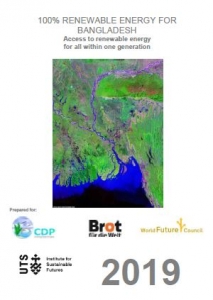
Excerpt
‘100% Renewable Energy for Bangladesh – Access to renewable energy for all within one generation’.
This scientific feasibility study unveils that deploying 100% renewable energy in Bangladesh is possible and can provide access to reliable energy for all its citizens, while increasing living standards to the level of industrialized countries by 2050. It proves that a renewable energy based system can create 1 million more jobs than the fossil fuel industry in the same timeframe.


